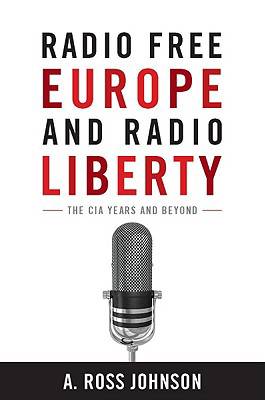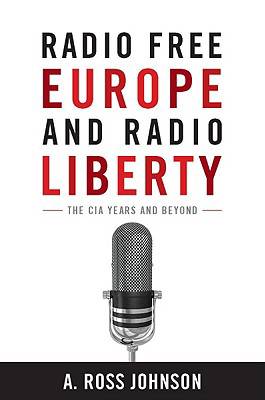
Door een staking bij bpost kan je online bestelling op dit moment iets langer onderweg zijn dan voorzien. Dringend iets nodig? Onze winkels ontvangen jou met open armen!
- Afhalen na 1 uur in een winkel met voorraad
- Gratis thuislevering in België vanaf € 30
- Ruim aanbod met 7 miljoen producten
Door een staking bij bpost kan je online bestelling op dit moment iets langer onderweg zijn dan voorzien. Dringend iets nodig? Onze winkels ontvangen jou met open armen!
- Afhalen na 1 uur in een winkel met voorraad
- Gratis thuislevering in België vanaf € 30
- Ruim aanbod met 7 miljoen producten
Zoeken
€ 128,95
+ 257 punten
Omschrijving
Radio Free Europe and Radio Liberty examines the first twenty years of the organization, policies, and impact of Radio Free Europe and Radio Liberty, arguably one of the most important and successful policy instruments of the United States during the Cold War. The book is based on extensive archival research both in the U.S .and in Germany, Poland, and Hungary, as well as on interviews and the author's own experiences. It uses CIA materials, in part declassified at the request of the author, extensively. Johnson concentrates on the origins and role of RFE/RL in the context of U.S. national security strategy, with particular attention to the role of the Central Intelligence Agency in covertly organizing and funding RFE/RL from 1949 to 1971. And he details RFE activities during the most important East European crises of the era--Poland and Hungary in 1956 and Czechoslovakia in 1968. The study concludes with an analysis of the factors that accounted for RFE/RL's effectiveness, which may offer lessons today as the United States tries to "win the hearts and minds" of foreign elites and populations and promote positive political change, particularly in the Muslim world.
Specificaties
Betrokkenen
- Auteur(s):
- Uitgeverij:
Inhoud
- Aantal bladzijden:
- 304
- Taal:
- Engels
Eigenschappen
- Productcode (EAN):
- 9780804773560
- Verschijningsdatum:
- 2/12/2010
- Uitvoering:
- Hardcover
- Formaat:
- Ongenaaid / garenloos gebonden
- Afmetingen:
- 155 mm x 231 mm
- Gewicht:
- 598 g

Alleen bij Standaard Boekhandel
+ 257 punten op je klantenkaart van Standaard Boekhandel
Beoordelingen
We publiceren alleen reviews die voldoen aan de voorwaarden voor reviews. Bekijk onze voorwaarden voor reviews.











